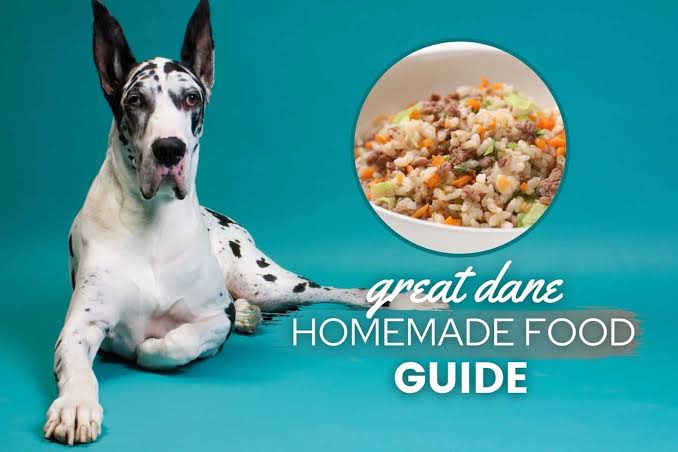
Whether you’re just thinking about buying a Great Dane, or you’re looking to take your current pet to the next level, you’re going to want to know everything you can about the breed’s nutrition. There are certain factors that you’ll want to pay special attention to, such as bone development, growth spurts, and digestive sensitivity.
Calcium
Choosing the right dog food for your Great Dane puppy can help them develop healthy bones. A diet with proper levels of calcium and phosphorus can promote the health of the bones and teeth. The calcium and phosphorus levels in dog foods should be closely balanced to support the fast growth of your Great Dane.
Calcium is a mineral that is essential for the structural rigidity of the body. It also provides essential intracellular functions. Calcium is stored in bones and is drawn out as needed. It can also be found in the blood in a chelated or complexed form.
To control calcium absorption, the level of vitamin D must be closely controlled. When calcium intake is too high, it interferes with absorption of other minerals.
Omega-3 fatty acids
Getting the right amount of omega-3 fatty acids in Great Dane Nutrition can have a profound effect on your dog’s health. These nutrients help regulate inflammation, reduce joint pain, and boost immunity.
Omega-3 fatty acids are derived from marine sources such as fish oil. Fish oil contains EPA and DHA. While both fatty acids are important, EPA is better for your dog. EPA has a higher bioavailability than DHA.
The best source for omega-3 fatty acids for your dog is from small fatty fish. However, your dog cannot produce omega-3 fatty acids, so they have to get them from their food.
Omega-3 fatty acids are also good for your dog’s skin and coat. They reduce inflammation, which reduces joint pain and swelling.
Fiber
Providing your Great Dane with a dietary supplement with fiber can help improve its overall health. Fiber helps with digestion in your dog’s stomach, and can reduce constipation. It also can help reduce the risk of colon cancer. It may also help keep your dog focused.
Fiber can be found in many dog foods, including beet pulp. Beet pulp is a by product of sugar beet processing. It’s easily digested and contains calcium and phosphorus, two important minerals for strong bones.
In addition to fiber, dogs can benefit from glucosamine, an important building block for healthy cartilage. It helps relieve joint discomfort and may help protect joint cartilage.
Growth spurts
Choosing a healthy diet for your Great Dane is a crucial step towards helping them grow at a healthy pace. It can help alleviate some anxieties and ensure that your dog is able to reach his full potential. A diet rich in protein and other nutrients is a must for healthy growth.
There are several factors to consider when preparing a diet for your Great Dane. It’s important to avoid overfeeding and to monitor your dog’s behavior for any signs of overexertion. It’s also important to pay attention to the quality of your dog’s food. A poor quality diet can lead to joint problems and other musculoskeletal disorders in the future.
Digestive sensitivity
Despite their giant size, Great Danes have a sensitive digestive tract. They are prone to intestinal upset and are more likely to develop diarrhea than other breeds. If your dog suffers from diarrhea, there are a few things you can do to ease the pain.
First, make sure your Great Dane is getting enough water. Water helps lubricate the digestive tract, removing pathogens. It also helps flush out vital liquids.
Mixing wet and dry dog food can also help lubricate your dog’s digestive system.
Second, make sure your dog is eating a balanced diet. This includes ensuring that it has the right amount of protein, carbs, fat and minerals. The best foods for your Great Dane will also be high in nutrient density, avoiding common ingredients.
Osteoarthritis
Keeping your Great Dane comfortable and pain free is essential. Fortunately, there are many ways to help your dog live a pain free life.
Joint pain is one of the most common health problems for Great Danes. Several factors can cause the pain, including injury, arthritis, or hip dysplasia. If you suspect your dog may have one of these conditions, make an appointment with your veterinarian. They will analyze your dog’s health and perform an orthopedic exam to determine the cause of the pain.
If your dog is suffering from arthritis, there are several treatments available. These treatments may include pain medications, surgery, and joint supplements.

